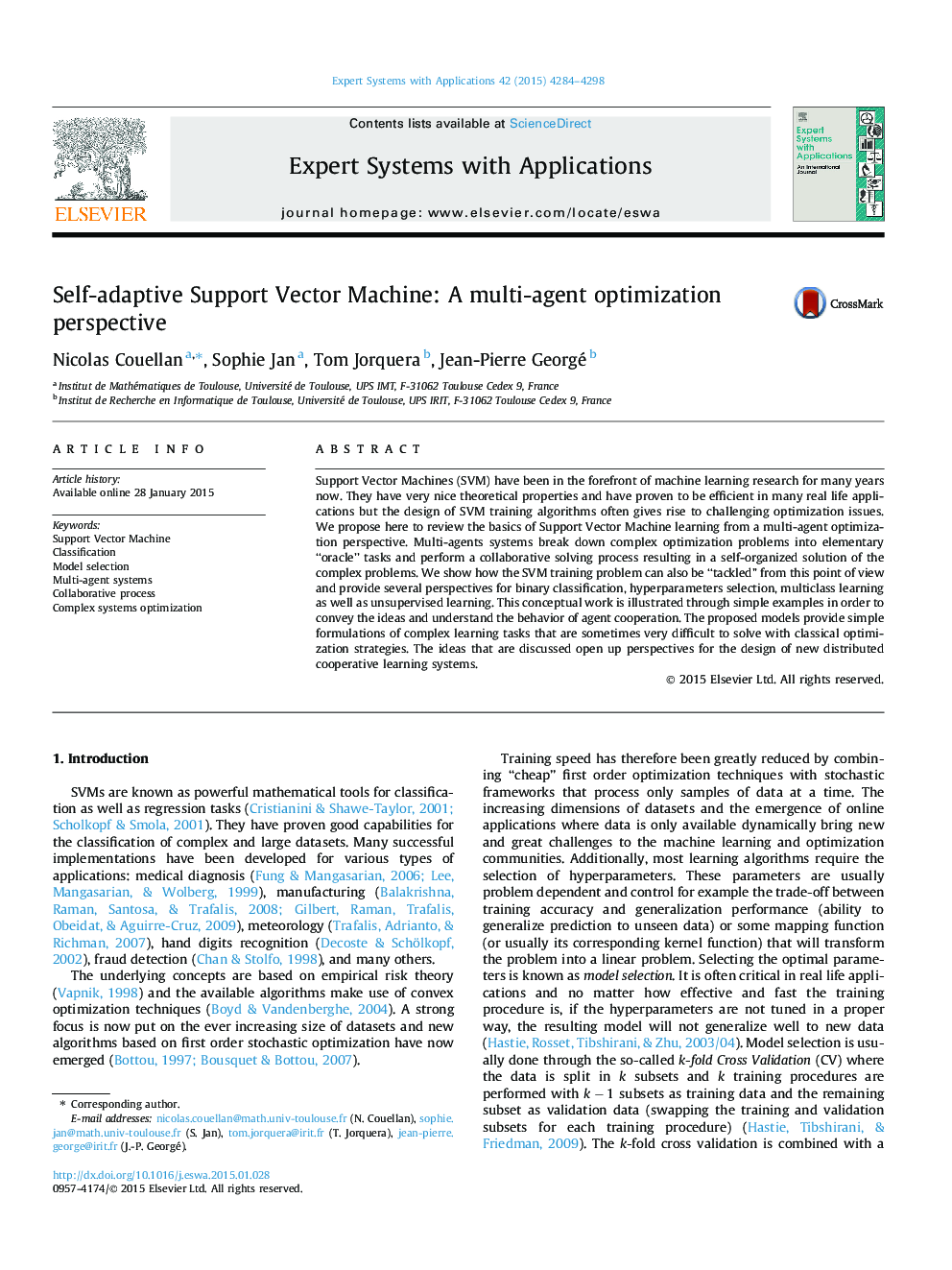| Article ID | Journal | Published Year | Pages | File Type |
|---|---|---|---|---|
| 385456 | Expert Systems with Applications | 2015 | 15 Pages |
Abstract
Support Vector Machines (SVM) have been in the forefront of machine learning research for many years now. They have very nice theoretical properties and have proven to be efficient in many real life applications but the design of SVM training algorithms often gives rise to challenging optimization issues. We propose here to review the basics of Support Vector Machine learning from a multi-agent optimization perspective. Multi-agents systems break down complex optimization problems into elementary “oracle” tasks and perform a collaborative solving process resulting in a self-organized solution of the complex problems. We show how the SVM training problem can also be “tackled” from this point of view and provide several perspectives for binary classification, hyperparameters selection, multiclass learning as well as unsupervised learning. This conceptual work is illustrated through simple examples in order to convey the ideas and understand the behavior of agent cooperation. The proposed models provide simple formulations of complex learning tasks that are sometimes very difficult to solve with classical optimization strategies. The ideas that are discussed open up perspectives for the design of new distributed cooperative learning systems.
Keywords
Related Topics
Physical Sciences and Engineering
Computer Science
Artificial Intelligence
Authors
Nicolas Couellan, Sophie Jan, Tom Jorquera, Jean-Pierre Georgé,
